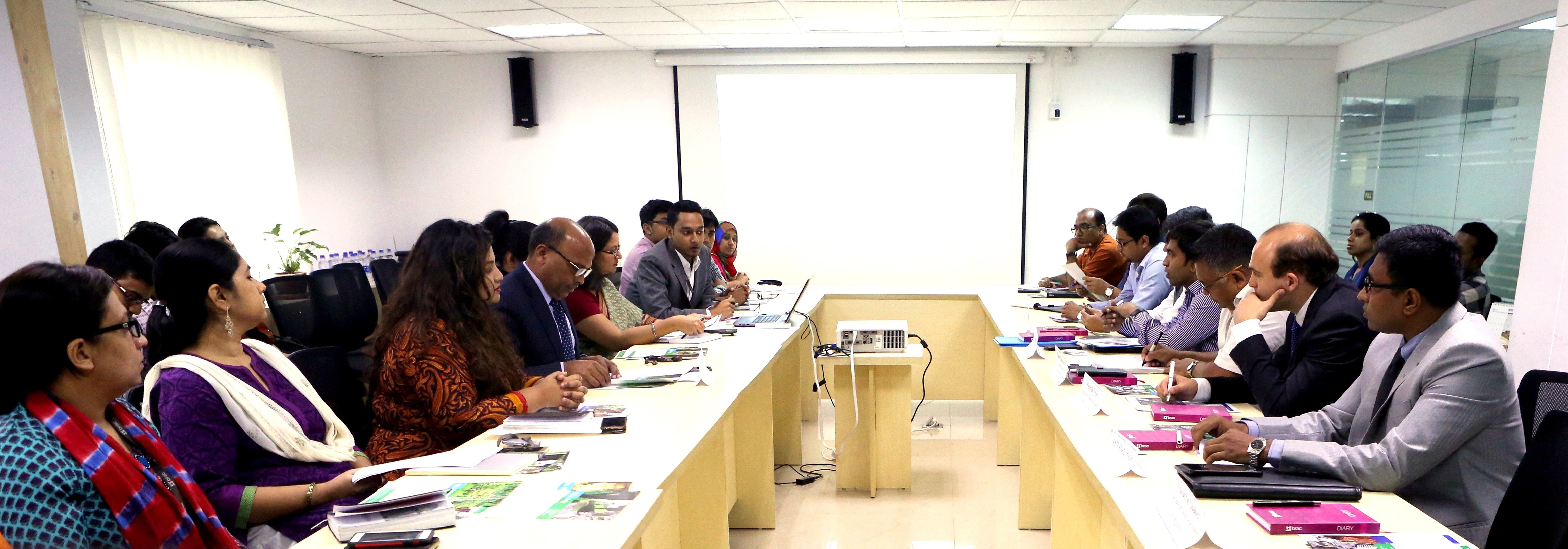CSR, the corporate buzzword of the recent decade in Bangladesh, still needs to go a long way in mitigating the major gap that exists between its concept and practice. Over time, CSR has stylishly transformed itself from its traditional definition of “Corporate Social Responsibility” to a means of ‘Sustainability’.
While attending a seminar titled ‘Development through CSR in Bangladesh’ organised by the Donor Liaison Office of BRAC in May 2016, I came across some interesting facts about the changing landscape of CSR practice in Bangladesh.
Why CSR?
The topic of CSR in Bangladesh has come under serious spotlight in the wake of Rana Plaza collapse. International clothing brands had come together to provide grants from their CSR funds to the survivors of the victims and also put pressure on garments factories in Bangladesh to be compliant. Currently, international buyers take into consideration the CSR efforts of the garments factories, on top of their compliance while placing orders. The more effective CSR practices are in place, the more orders can be received from international buyers and the more revenue Bangladesh can generate through its export.
Oftentimes people tend to confuse CSR with compliance, but CSR should be above and beyond the compliance level. And, there is a common practice that some organisations try to cover the repercussions of their work through their CSR activities (e.g. Tobacco Companies), which should not fall under CSR.
CSR: An agent of change
Traditionally, CSR has been regarded as a source of funding for social works. In an economy where consumer pledge their loyalty to brands that are loyal to the society, some organisations also make use of their CSR obligations and engage advertising agencies to implement their CSR projects reaffirming their branding efforts.
However, the experts recommend utilising CSR as an agent of change so that new targeted innovations can be brought about in the social sector through private sector funding. The primary reason why the concept originated was to ‘give back’ to the society they extract their profits from, hence by definition, the CSR implementations should follow the intervention needs of the society more than popular demands.
CSR in Bangladesh
Local private organisations, especially private banks, are actively participating in occasional CSR activities like blanket distribution, health camp, relief distribution, etc. Dutch Bangla Bank Ltd (DBBL) has pioneered the concept of providing scholarships to underprivileged students through their CSR activity, which has gained lots of traction in this space.
CSR Bangladesh is currently spearheading some research initiatives and also they provide training to university students on CSR aiming to make the future leaders aware of the right CSR practice. Besides establishing benchmark for CSR success, they also raise CSR awareness amongst the relevant stakeholders.
Some multi-national corporates are integrating triple bottom line: people, profit, and planet into their business models to stay relevant. Unilever has launched Sustainable living plan, a blueprint of their sustainable growth approximately five years ago where the components of CSR are integrated. Through CSR activities, Unilever wants to enrich their community through voluntary contribution and later want to bring their brands to the life of those people.
Standard Chartered Bank, the oldest bank in Bangladesh, no longer uses the term CSR, they use the term ‘Sustainability’ instead. As part of their sustainability project, SCB is currently working with BRAC in different projects, like providing financial literacy training to young girls at Chittagong and executing a livelihood project for Chitmohol people at Lalmonirhat.
The shifting sands
Katalyst, a market development project, is currently partnering with private organizations and NGOs in different capacities to execute some of their projects, creating livelihood opportunities for base of pyramid (BoP) population through inclusive business models. This is an excellent example of private sector participation in the donor depended development sector. Therefore, it is likely that some private organisations will allocate some of their CSR funds into innovative market development projects being a key stakeholder of the development sector.
International donors are currently disbursing more funds to private organisations as they consider that the funds will be more efficiently utilised if private organisations will implement those projects. In next few years, Bangladesh will experience a shortage in traditional donor funding due to its transition into a middle income country, but there will be more option of match making grants-where private organisations will play a huge role in mobilising funds and resources.
Private organisations get 10% tax rebate for their CSR activities. Currently, there is no fixed policy in place from the government of Bangladesh for private organisations to practice CSR, although Bangladesh Bank has given some set of directives to the private banks on how to utilise CSR funds. The government is currently working on some new policies, which will have a clear guideline on CSR practice. Also, Bangladesh bank will monitor the performances of CSR and use it as an additional dimension of their management performance.
CSR has not been properly institutionalised in Bangladesh yet. Also a handful of research work has been conducted to know the practice and impact of CSR activities in Bangladesh. This triple bottom line- People, Profit and Planet concept of CSR, if adopted well, promises to bring about sustainable development. Therefore, all the concerned stakeholders should come forward to create an ecosystem to ensure the right practice of CSR in Bangladesh.

Very insightful indeed! We should have more of such events at BRAC!